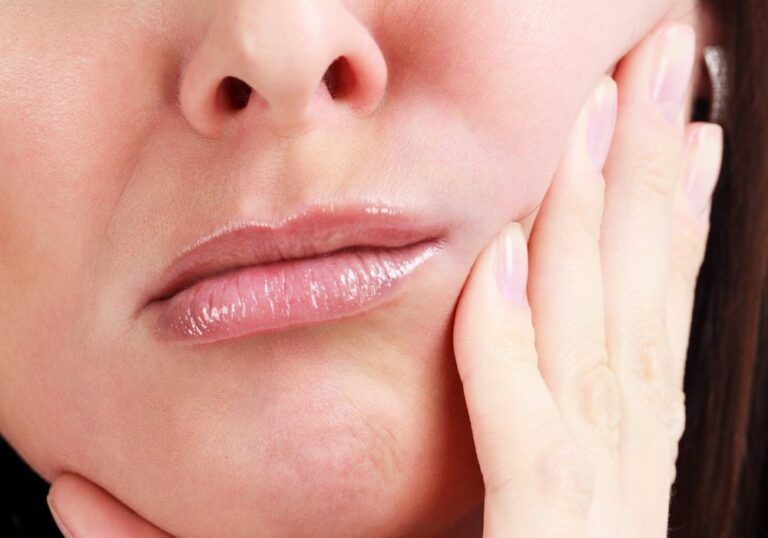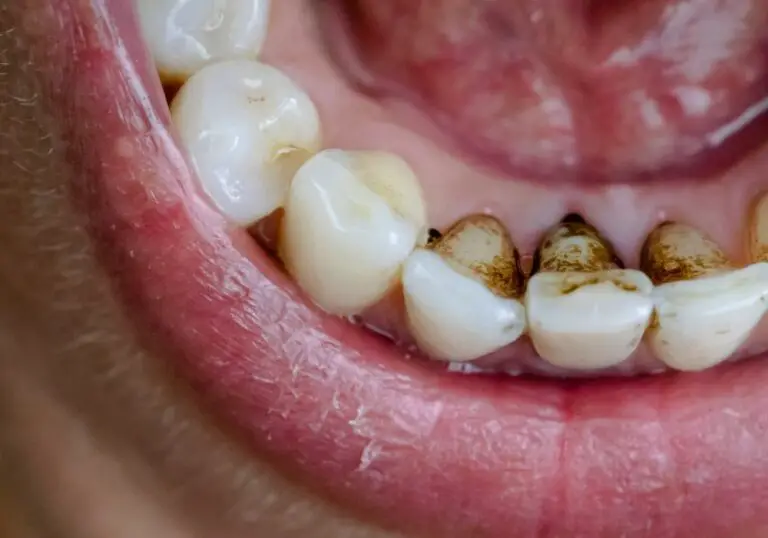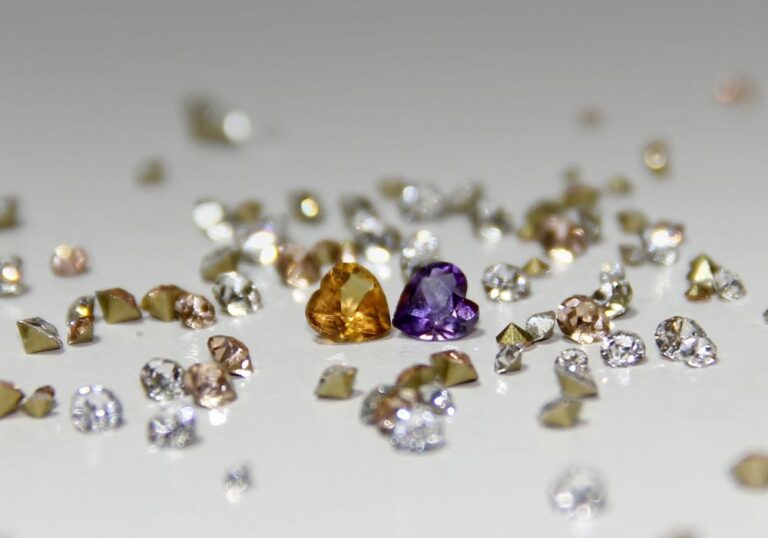Parents often eagerly await their baby’s first tooth. While the average age is around 6 months, some babies surprise their parents by getting teeth very early. But is it possible for teeth to erupt as early as 6 weeks old?
Typical tooth eruption timeline

To understand very early teeth, it helps to first look at the usual ages when babies get their first teeth:
- 3-4 months – The earliest teeth usually emerge between 3-4 months. About 3-5% of babies have at least one tooth by 3 months of age.
- 4-7 months – Most babies (around 75-85%) get their first tooth sometime between 4 and 7 months. 6 months is the average age.
- 8-12 months – Some babies are late teether and don’t get their first tooth until 8 months or even after their first birthday. Around 6% don’t have any teeth by 12 months.
What affects when the first tooth erupts?
A number of factors may influence the timing of a baby’s first tooth:
- Genetics – When parents teethed as babies often predicts when their own children will. Early and late teething can run in families.
- Birth weight – Some studies have found earlier teething in lower birth weight babies. Heavier newborns tend to teethe later.
- Diet – Breastfed babies may teethe later than formula fed infants, possibly due to differences in mineral content.
- Ethnicity – On average, African American babies get teeth earlier than Caucasian infants. Genetics and ancestry play a role.
- Environmental factors – Fluoride exposure and climate have been proposed to shift eruption earlier, but findings are inconclusive.
- Chronic diseases – Many childhood illnesses are associated with delayed teething. Poor nutrition and vitamin deficiencies can also delay it.
- Hereditary conditions – Some genetic disorders and syndromes cause teeth to develop and erupt earlier than normal.
So a combination of genetic, ethnic, and environmental influences likely interact to determine an infant’s first tooth eruption timing. While unusual, it is possible for teeth to erupt weeks or even months before the typical age range.
Signs of early teething
Babies who are teething earlier than expected around 6 weeks old may show some of these signs:
- Increased drooling, chewing motions, and tendency to put objects in mouth
- Swollen, inflamed gums that may be bluish in color
- Crankiness, fretfulness, and disrupted sleep
- Rubbing mouth or chin, or sucking fingers for relief
- Refusing bottle or difficulty nursing due to oral discomfort
- Low grade fever from inflammatory changes in gums
- Decreased appetite due to mouth pain
Parents suspecting early teething should look inside baby’s mouth for any emerging teeth. But because teething symptoms can overlap with those of other oral issues like thrush, it’s important to have a pediatrician examine the baby as well.
What causes early baby teeth?

While less common, there are several explanations for why a baby might already have some teeth present at 6 weeks old:
Natal and neonatal teeth
Natal teeth are teeth present at birth, while neonatal teeth erupt within the first 4 weeks after birth. The incidence of natal/neonatal teeth is around 1 in every 2000 births. They are often located in the lower front area and may be loose.
Congenital syphilis
Congenital syphilis transmitted during pregnancy can cause teeth to develop early. Severe cases may result in teeth erupting within the first few weeks of life.
Endocrine disorders
Hyperactivity in glands regulating growth and metabolism (like the thyroid) is linked to accelerated tooth eruption. Diseases like hyperthyroidism may trigger early teething.
Hereditary syndromes
Several inherited disorders involving skeletal abnormalities are associated with early teething. Babies with Hallerman-Streiff syndrome typically get teeth in the first month.
Metabolic diseases
Metabolic conditions like hypophosphatasia, a disorder affecting bone mineralization, can sometimes cause teeth to erupt in the first weeks or months.
Idiopathic factors
In some cases, extremely early teething occurs spontaneously for unknown reasons. Genetic and environmental factors likely interact in complex ways to speed up eruption.
If a baby already has teeth coming in at only 6 weeks old, underlying medical causes should be investigated by a pediatrician. But occasionally, it’s attributable to normal variation and chance occurrence. Most underlying conditions are rare.
Management of extremely early teeth

If your baby has teeth erupt by 6 weeks, here are some tips for care and management:
- Consult pediatrician to identify any associated disorders. Most early teething is normal variation.
- Pediatric dentist can monitor tooth development and health at early visits.
- Clean teeth with soft baby toothbrush and water. Avoid fluoride toothpaste before 6 months unless advised by dentist.
- Don’t pull on extremely loose teeth yourself. See a dentist for extraction if necessary.
- Extraction is sometimes needed for very mobile teeth posing a choking risk or feeding problems.
- Use anesthesia for extractions to minimize discomfort in young infants. Local anesthesia is safest at this age.
- Gently rub swollen gums with clean finger or wet gauze to relieve soreness.
- Prevent early childhood caries by avoiding juice or letting bottles sit in mouth.
With diligent oral care and dental follow-up, infants with unusually early teeth often go on to develop healthy primary and permanent teeth. While alarming at first, parents can be reassured that early teething alone rarely causes long term problems.
Frequently asked questions
Here are answers to some common questions about babies getting teeth extremely early:
Are newborns born with teeth?
It’s very rare, but some babies are born with natal teeth already present in their gums. About 1 in 2000 infants have 1 or 2 natal teeth, usually in the lower front. So yes, it’s possible but very uncommon.
Is a 6 week old getting molars normal?
No, it would not be normal or expected for a 6 week old baby to have molars. Molars are almost never present until at least 1 year old. Any molars erupting at 6 weeks would likely indicate an underlying disorder or syndrome causing accelerated dental development.
Can teething at 6 weeks cause developmental issues?
No, early teething itself does not cause any developmental delays or problems later in childhood. As long as there are no related disorders present, babies who teethe early go on to hit physical and cognitive milestones at a normal pace.
Do neonatal teeth need to be pulled?
Loose natal or neonatal teeth that pose a risk for falling out and being aspirated often do need to be extracted. But dentists prefer to leave stable neonatal teeth alone if they are not causing any feeding or gum irritation issues.
Do early baby teeth predict permanent teeth timing?
No, early eruption of primary teeth is not known to correlate with when permanent teeth come in. Premature loss of baby teeth due to early eruption also does not typically accelerate permanent teeth. So early teething has little bearing on later dental development.
Conclusion
While most babies get their first tooth around 6 months old, some infants are early teethers and may already have teeth present as early as 6 weeks old. Several factors can occasionally cause teeth to erupt earlier than expected.
If a 6-week old baby has teeth, it’s important for a pediatrician to evaluate for associated medical conditions. But in many cases, no cause is found and extremely early teething is chalked up to normal variation. As long as the teeth are carefully monitored and maintained, early eruption is unlikely to cause problems.
Parents can be reassured that prematurely erupted teeth often do not mean permanent teeth will also come in early. With good oral hygiene and dental care, babies with unusually early teeth can go on to have healthy smiles. While a surprise, parents can take teeth in stride, even if they pop through gums earlier than anticipated!







